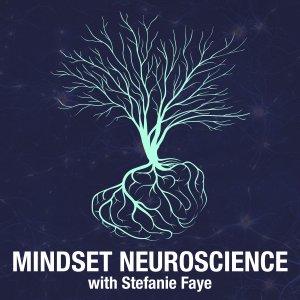Mindset Neuroscience Podcast

How fixed mindset leads to bias, stereotype and prejudice – MNT 007
Earlier studies on fixed vs growth mindset reveal how we build bias and stereotypes.
The original wording used by Carol Dweck and colleagues before they popularized ‘fixed versus growth mindset’ was ‘entity’ versus ‘incremental’ mindsets.
Dweck’s research (included the idea that children are “theory theorists” – they begin building theories very early on about why something is the way it is.
What she found with these young theorists was fascinating. When researchers used ‘generic language’, which consisted mainly of talking about groups using plural nouns and adjectives, versus non-generic, or individuated, statements, the children made very different inferences.
For example, when children were primed with the statement that “dolphins (plural) have fat under their bellies”, they theorized that the fat must be innate or functional. So they would say “it must be because it helps dolphins float”, or “the fat keeps them warm”
But if they got a non-generic, or individuated statement: “that dolphin has fat under her belly”, they would attribute it to something that particular dolphin did (not the species as a whole). So they would say “she must have eaten too much”.
It’s hard for humans to not stereotype…
The origin of stereotyping comes from early childhood, where we absorb a lot of ‘generic’ language.
For example, over 40% of the words we hear before the age of six are generic category-type statements, that start with generalized groupings like “boys are ___,”, or “kids don’t __”, etc. This is helpful for our young brains to navigate the world more easily, but the issue is that if we don’t also get exposed to highly diverse data, and personalized encounters from many different types of people, this generalizing leads to what is called ‘essentialist’ thinking: that groups of people are homogeneous and invariant.
The problem with generic language:
Research has shown that when people are primed with essentialist statements, like ‘scientists prove the genetic underpinnings of intelligence’, they are less likely to protest inequality. Because in that paradigm, ‘nothing can be done for ‘those people’.
Stanford’s neurological sciences professor Robert Sapolsky also emphasizes the importance of using non-generic language. In his book, Behave, he shares studies that show that when people are primed with words to make groups of people homogenous and ‘invariant’, they are more likely to be ok with inequality/
“Focus on the larger, shared goals. Practice perspective-taking. Individuate, individuate, individuate.”
This means, we need to be conscisouly aware of when and how much we are using generic language.
We need to notice if we are saying “those people”, or “they” – and ask ourselves if what we say about a group is really, truly valid for every single person in that group.
If it’s not, then it’s more accurate (and I’ll argue better for building flexible neural circuitry),






 Visit Podcast Website
Visit Podcast Website RSS Podcast Feed
RSS Podcast Feed Subscribe
Subscribe
 Add to MyCast
Add to MyCast